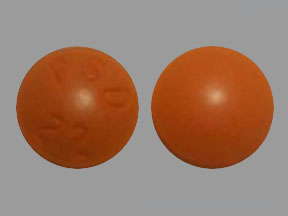
Eq Stool Softener/laxative Coupons & Savings Card – Discount Prices from $10.55
Brand for: Sennosides-docusate
My prescription
Edit
8.6-50MG, Sennosides-docusate (60 Tablets)
Select pharmacy

Walgreens
$10.55
COUPON PRICE
Albertsons
$16.91
COUPON PRICEEq Stool Softener/laxative savings card
Show this card to your pharmacist
Walgreens
$10.55
BIN
ID
PCN
GRP
019876
LHD705BFCA
CHIPPO
LHX
Powered by
More prescriptions for constipation
More prescriptions for constipation
Price history for Eq Stool Softener/laxative (brand) & Sennosides-docusate (generic)
60 Tablets, 8.6-50MG
Average retail price for Eq Stool Softener/laxative
Average retail price for Sennosides-docusate
Average SaveHealth price for Sennosides-docusate
Our price history data is based on aggregated prescription data collected from participating pharmacies in America. Our prescription data updates daily to reflect the latest price changes. If you notice a missing data point, it means there wasn't sufficient data available to generate a monetary value for that date.
Over the last 12 months, the average discount price of Eq Stool Softener/laxative is $10.86 using the SaveHealth savings card. That's an average savings of -150.81% on Eq Stool Softener/laxative with our discount card.
*Retail prices are based on pharmacy claims data, and may not be accurate when we don't have enough claims.
Eq Stool Softener/laxative (Sennosides-docusate) dosage forms
Dosage Quantity Price from Per unit 8.6-50MG 60 Tablets $10.55 $0.18 8.6-50MG 1 Tablet $9.03 $9.03 8.6-50MG 28 Tablets $9.72 $0.35 8.6-50MG 100 Tablets $18.19 $0.18 8.6-50MG 120 Tablets $18.83 $0.16 8.6-50MG 300 Tablets $24.56 $0.08 8.6-50MG 1000 Tablets $43.80 $0.04
| Dosage | Quantity | Price from | Per unit |
|---|---|---|---|
| 8.6-50MG | 60 Tablets | $10.55 | $0.18 |
| 8.6-50MG | 1 Tablet | $9.03 | $9.03 |
| 8.6-50MG | 28 Tablets | $9.72 | $0.35 |
| 8.6-50MG | 100 Tablets | $18.19 | $0.18 |
| 8.6-50MG | 120 Tablets | $18.83 | $0.16 |
| 8.6-50MG | 300 Tablets | $24.56 | $0.08 |
| 8.6-50MG | 1000 Tablets | $43.80 | $0.04 |
Is Equate stool softener a laxative?
Equate stool softener is not classified as a traditional laxative. It is a stool softener, which works by helping to mix more water into the stool, making it easier to pass. This is different from a laxative, which typically stimulates bowel movements.
Can I take Equate stool softener while pregnant?
It is generally recommended that pregnant individuals consult with their healthcare provider before taking any medication, including Equate stool softener. A healthcare provider can provide guidance based on the individual's specific health needs and pregnancy status.
What does equate stool softener do?
Equate Stool Softener is used to help relieve occasional constipation by making bowel movements easier to pass. It works by increasing the amount of water the stool absorbs in the gut, making the stool softer and easier to pass.
What are the side effects of equate stool softeners?
Equate stool softeners, which typically contain docusate sodium as the active ingredient, may cause some side effects. Common side effects include stomach cramps, diarrhea, and throat irritation. Less common but more serious side effects can include allergic reactions such as rash, itching, swelling, severe dizziness, or trouble breathing. If any severe side effects occur, it is important to seek medical attention promptly.
